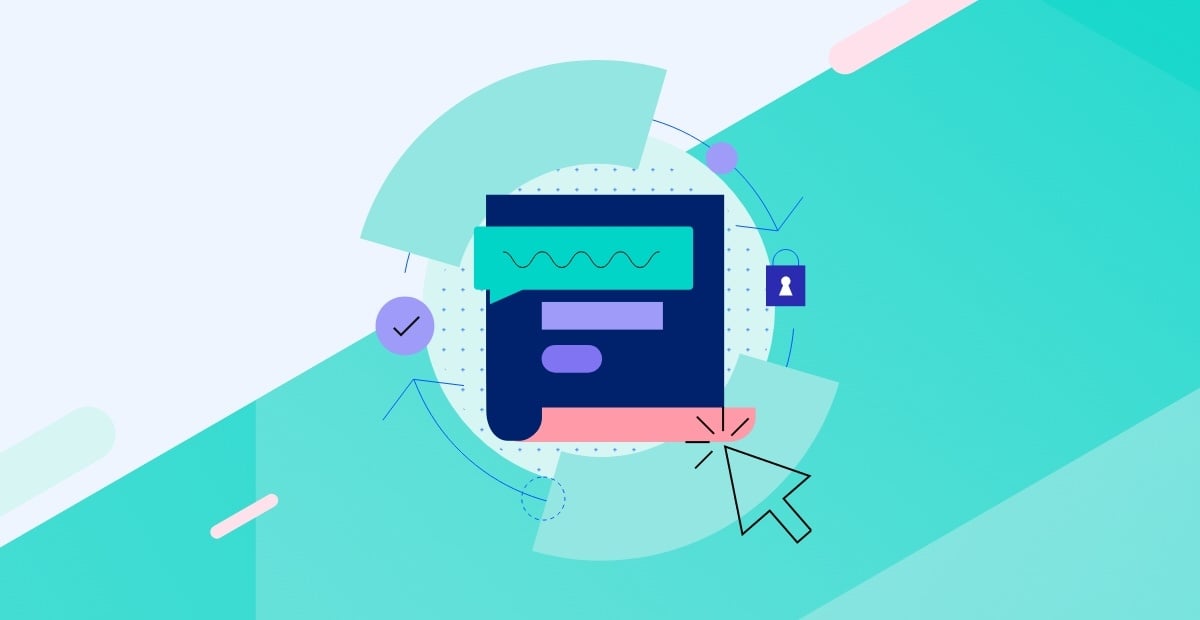What Is A+ Certification? Your Ticket to an A+ Resume

There's a truth that people applying for IT jobs need to keep in mind: most recruiters know next to nothing about IT. You'll get a blank stare when you ask them, "What is A+ certification?"
Finding an IT job is usually an exasperating experience, and perhaps the biggest frustration is simply getting your resume noticed. You know you’ve got what it takes, but employers are deluged with candidates. Getting them to acknowledge you can seem like hoping the star quarterback can hear you cheering from the upper deck in a stadium full of fans.
Let Your Resume Do The Talking
As you search for a job in IT and work with recruiters, you may discover that most of them know next to nothing about IT. If you ask, for example, whether or not you should get an A+ professional certification, they will either just say “yes” automatically—because they assume it must be a good idea—or you get a blank stare because they don’t know what A+ certification is!
However, hiring managers who are also IT professionals know that an A+ certification is one of the most widely-respected credentials for entry-level IT candidates. Their screeners won't necessarily know what the certification represents, but when they see it on your resume, they'll know you’re a legitimate IT pro.
When it comes to getting your resume recognized by non-IT and IT professionals, earning an A+ certification is the A+ move. Even if you already have an Associate’s or even a Bachelor’s degree, adding an A+ certification to your resume proves you really know the practical basics of IT.
In this blog, we will take you through some of the most common questions that entry-level IT pros have often asked about A+ certification. Knowing what lies ahead just might help you complete your journey successfully and perhaps even sooner than you think.
What is A+ certification?
Offered by the Computing Technology Industry Association (CompTIA), A+ certification is one of the industry's most well-known credentials. CompTIA certifications recommends 9-12 months of hands-on experience in an IT lab or in the field before taking the tests.
A+ is recognized by international-standards bodies like ISO, big tech companies, and government agencies as a legitimate measure of an IT professional’s knowledge. The vendor-neutral certification doesn't cover technology on specific systems, but rather the concepts behind the IT processes that vendor systems carry out.
IT pros will generally learn about vendor technologies on the job or by earning vendor-specific certifications. But if you are just entering the IT industry or have little previous experience, earning an A+ certification can go a long way toward helping you land your first job that leads to a legitimate IT career.
Why is it beneficial to earn a vendor-neutral certification?
By passing the CompTIA exam, you demonstrate that you have a foundational knowledge of the basic concepts across all the major technologies that are essential to entry-level IT operations. You understand the devices in today's work environments, which include not only servers and desktops, but also mobile devices. You're also tuned in to networking, security, operating systems and common email functions. Essentially, the CompTIA A+ certification exam proves your worthiness as a support technician that understands preventative maintenance for business IT infrastructures.
The importance of possessing general knowledge will grow as corporate help desks play a key role in keeping end users productive. Companies want their support personnel to know at least a little about everything when it comes to networking and security, and they want their IT personnel to be able to fulfill a variety of needs. If you can pinch hit for someone else in an emergency, you just might turn into an all-star!
Are there also CompTIA security, networking and cloud certification tests available?
IT professionals with ample job experience can consider skipping A+ certification and move on to one of the higher-level certification programs from CompTIA. These include Network+, Cloud+, and Security+.
Another advanced certification from CompTIA to consider is Server+. This certification helps you dig deep into server-related concepts and tells employers you have what it takes to be a server technician, server support specialist, server administrator or storage administrator.
A CompTIA networking certification, or one in cloud computing, servers or security, makes sense if you plan to focus on a specific area of IT rather than becoming an IT generalist. Experienced IT pros should also consider earning vendor-specific credentials from companies like Dell, Cisco, Microsoft and Apple.
To help you decide what makes sense for you, examine the qualifications of the jobs in which you are interested. It also helps if you can interview IT pros (especially those who hire) to see what employers are looking for.
Given all the cyber threats companies face today, adding cybersecurity experience and certification to your resume is particularly powerful. Be sure to read our blog, IT Pros, Do You Have Cybersecurity On Your Resume?, to find out more. This includes some info on other security certifications you can obtain.
How do I get an A+ certificate?
A+ certification is earned by passing two exams that you take sitting at a desktop at an authorized CompTIA certification site:
- Exam 220-901 covers PC hardware as well as peripheral, mobile device and networking hardware. The exam also includes troubleshooting hardware and network connectivity issues. This exam requires a score of 75% (675 on a scale of 900) or better to pass.
- Exam 220-902 covers installing and configuring operating systems including Windows, iOS, Android, Apple OS X and Linux. The test also addresses security, the fundamentals of cloud computing and operational procedures. This test requires a score of about 78% (700 on scale of 900) or better to pass.
Each exam consists of up to 90 multiple choice questions (single and multiple responses). There are also drag-and-drop and performance-based questions. You will have 90 minutes to complete each exam, and to earn a passing grade, you need to show that you've done more than just memorize definitions; expect to also apply your knowledge to computer simulations. To earn certification, you have to pass both exams. By doing so, you will prove just how well you know today's IT environments.
How long will my A+ certification last?
A+ certifications are good for three years from the date you pass your certification exam. CompTIA also offers a continuing education program to extend certifications for additional three-year periods. It’s important to note that the 900 series tests were launched in December of 2015, and CompTIA typically retires a series approximately three years after the launch as a way to keep up with emerging technologies.
This likely means a new series will be announced sometime in late 2018 or early 2019. While earning certification in the current series will still pay benefits and be recognized by employers, earning certification in the new series once it’s available would be considered a stronger credential.
If you’re ready to get certified now, it makes sense to proceed with the current series. But if you decide to pursue certification down then road, check to see if a new series is available.
Does A+ certification require attending any classes?
You don't have to take any specific courses to earn an A+ certification; you just have to pass your two exams. But as CompTIA advises, learning and testing go hand-in-hand, and each increases the success for the other. An analysis of CompTIA certification candidates shows that exam pass rates are significantly higher among those who trained compared to those who did not.
Even if you're comfortable with your general IT knowledge, it's a good idea to brush up on what the exams cover. You're always better off sitting down at an exam terminal when you know what you're about to be asked.
Most chain bookstores carry a host of exam study materials on A+ certification. You can also order books online. "Exam Cram" and "A+ Certification for Dummies" have both been known to work well as prep tools. To tap into one of the books approved by CompTIA, check out "CompTIA A+ Certification Exam Guide, Ninth Edition" by Mike Meyers.
Does CompTIA offer practice tests or certification training?
Practice questions are available at the CompTIA website, covering multiple topics and giving you a good idea what kind of questions will appear on the actual exams. CompTIA also offers training tools that cover everything you need to know. These include ebooks and printed books where you can learn at your own pace. There’s also online exam prep software.
CompTIA A+ certification training is also available. CompTIA partners with a number of organizations that offer classroom-style training programs to help aspiring technicians pass the exams. Companies with several people that need training can arrange for a customized on-site educational program with other students that cover all exam objectives. This includes hands-on learning and building the essential skills similar to any other certification program.
How do I take the test?
Now that hopefully we’ve answered your questions, follow these steps to register and to complete your exams:
- Find a test center near you. Pearson VUE is an organization that administers CompTIA exams from testing centers all over the world. Just choose a center that's convenient to your location and register for your exams.
- Purchase a voucher. Vouchers currently cost $211 per exam and are valid for 12 months from the date of purchase.
- Show up for your tests and pass. If you fail the first time, you can retake your exams immediately, but you'll have to purchase another voucher. If you don't pass the second time, you'll have to wait at least 14 days before retaking.
A+ Is A Big Boost to Your IT Resume
Passing the A+ exams to become a certified professional in the IT industry is one of the easiest and most affordable ways to add some heft to your resume. And according to a study conducted by CompTIA, jobs that require A+ certification offer attractive average salaries for entry-level IT professionals:
- Support Specialist—$54,500
- Field Service Technician—$46,000
- Desktop Support Analyst—$60,000
- Help Desk Tier 2 Support—$45,000
Even if screeners in human resources don't know the first thing about the technical terms in your resume, they'll give you serious consideration when they see that you are CompTIA A+ Certified. Simply catching their attention with an “A+ Resume” opens the door to job opportunities even beyond entry-level IT jobs, so you can get inside and show them what you have to offer without understanding your on-the-job experience.

